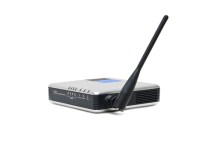Judge Rules IP Addresses Are Insufficient Evidence To Identify Pirates
 Mass lawsuits have been one of the most effective weapons rightsholders have had against torrenters. By using IP addresses to identify infringers, rightsholders have not only been able to find a large supply of alleged infringers to take action against, but are also to attach names — and wallets — to instances of infringement. The problem is that these cases tend to operate with the pinpoint accuracy of a flamethrower, which is why New York Judge Gary Brown has ruled IP addresses are insufficient evidence to identify pirates, and has provided a lengthy and thoughtful explanation as to why that is.
Mass lawsuits have been one of the most effective weapons rightsholders have had against torrenters. By using IP addresses to identify infringers, rightsholders have not only been able to find a large supply of alleged infringers to take action against, but are also to attach names — and wallets — to instances of infringement. The problem is that these cases tend to operate with the pinpoint accuracy of a flamethrower, which is why New York Judge Gary Brown has ruled IP addresses are insufficient evidence to identify pirates, and has provided a lengthy and thoughtful explanation as to why that is.
The way these mass lawsuits tend to work is that rightsholders collect a bouquet of IP addresses, which in and of themselves, don’t exactly help them. The next step is that the rightsholders then take the IP addresses to court and try to get a subpoena for personal information about said IPs from Internet service providers. Once they get the names from the ISPs, they can move ahead with the case.
The problem here, clearly, is that the person who has the misfortune of having their name attached to the IP address in question isn’t necessarily the one who was doing the pirating. In fact, they often aren’t. That’s not to say they never are, but it’s a bit of a mess at best. There’s a plan in the works to start throttling Internet access to certain users this summer by using this kind of IP identification, but at the same time — using this very identification process — the RIAA’s own IPs have been caught infringing. Meanwhile, the RIAA says it was someone else using their IPs, which is exactly the same excuse they refuse to acknowledge when filing mass lawsuits. Like I said, a mess.
Judge Gary Brown, in his order, attempted to straighten things up a bit with a very detailed explanation of why, legally, IP addresses are not sufficient evidence to prosecute pirates. Essentially, it boils down to one major point; using an IP address used to be a pretty reasonable method to single out an individual, but it isn’t anymore. In the past, file-sharing could be tracked down to a single, wired access point that was registered to a single person and could only be used by one person at any given time.
The prevalence of wireless routers throws the logic of “IP address = person” — which was once reasonably valid — completely into question, or out the window depending on how you look at it. From the order:
“While a decade ago, home wireless networks were nearly non-existent, 61% of US homes now have wireless access. As a result, a single IP address usually supports multiple computer devices – which unlike traditional telephones can be operated simultaneously by different individuals.
Different family members, or even visitors, could have performed the alleged downloads. Unless the wireless router has been appropriately secured (and in some cases, even if it has been secured), neighbors or passersby could access the Internet using the IP address assigned to a particular subscriber and download the plaintiff’s film.”
It’s a pretty obvious argument, but one you see being made surprisingly infrequently in higher courts. Of course, all this really means is that mass copyright cases aren’t going to fly in the Eastern District of New York for the time being. However, the well made argument could have a positive influence on copyright cases and IP addresses in law overall. If nothing else, it’s good to see a decision that doesn’t support a shoot-first-with-a-flamethrower-and-ask-questions-later-maybe approach to dealing with piracy. Hopefully we can look forward to more in the future.
(via TorrentFreak)
- Kanye has a whois service?
- ISPs to start throttling pirates this summer
- It’s always best to err on the side of caution when dealing with piracy
Have a tip we should know? [email protected]